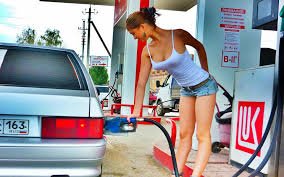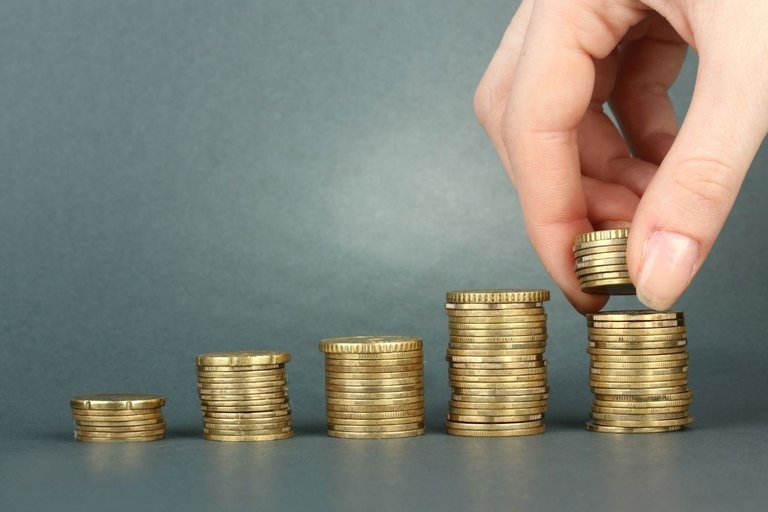DO YOU WANT TO KNOW HOW TO REDUCE THE COST OF GASOLINE?

With the monthly increase in the cost of fuel, it is necessary to take all possible measures that will lead to a saving of gasoline.
Care to turn on and boot
- do not heat your vehicle for several minutes when it is not moving, unless they are times of low temperatures and less than a minute; Since the only thing you're doing is to eat gasoline and money.
2 when you progress to start your journey, do it moderately then it accelerates progressively. You only have to wait for the engine temperature to stabilize to then get the full power of this.
3 is a mistake to accelerate the car to boot time, causes premature engine wear, damaged spark plugs or injectors and excessive deposits of coal are produced.
4.-instead use a multi-grade oil of good quality, this will give you extra protection at the start of the engine, especially at low temperatures.
It monitors the speed
1 it is not good to accelerate down your car since you provoke that consume up to four times more fuel and increases the possibility of accidents, do it moderately.
- If you are on a cruise ship, the action of braking and accelerating, makes your car consumes more fuel and get tired more, now imagine yourself on a schedule with more traffic.
Accelerate gradually, gentle, moderate, steady speed and according to traffic conditions.
3 driving at very low speeds is equally counter-productive to do it at a high speed.
Try driving between 60 to 80 km/h, since most of this speed vehicles offer optimum economy. On motorways, it reduces speed and don't pass of 110 km/h, so have gasoline-saving and will be more secure.
Think ahead
1 take your lane, in time since if you accelerate sharply because you not anticipaste your change, you provoke one higher fuel consumption, and there is more chance of collision with the car in front.
2 If you are going up or down a slope do not increase the speed of the car, since you not only force the engine, but you cause that you consume more gasoline. Best thing is to try to maintain a constant speed, anticipate braking and acceleration of traffic situations.
when driving, takes into account both the car you have nearby, as the more distant situation, this will allow you to reduce the use of the brake.
when approaching a slope upward, gradually accelerates before entering the rise and if necessary changes to a lower speed.
when the slope is down, allows gravity to do its work and help you save fuel, leave the curb weight of the vehicle to drive it.
It takes into account the power
When you accelerate your car thoroughly, you start cold, accelerate and brake continuously; In addition to the constant friction between mechanical, of the bearing and the air resistance to the advance parts, cause the over-consumption of fuel and pollute.
1 correctly used the power of the car. Accelerate gently and for greater performance in the power of your car, get the speed changes gradually.
Usually the power offered by the compact cars is enough both to circulate in the city as on the road still passing you the speed limit (which you must do either).
2 get the most benefits of torque and power that can provide you with your car, do not forget to consult your manual to find out more about this topic.
Your attitude to the steering wheel
1 respects the rules, relaxed driving and with care, don't rush; It preserves your distance and gradually changes speeds so the car take rate by itself.
Aerodynamics also has
- the open windows when traveling by road or highway, the use of "sunroof" or "sunroof" as well as the cargo carrier basket, are some elements that also cause the over-consumption of gasoline; It is better, and if possible, close the windows and use the internal ventilation.
Type of car
With these actions, is that you can reach a saving of up to 10% of normal consumption of gasoline.
1 combines and plan your trips by taking into account the time you need to transport you, save 20% of your expenses, decrease the distance traveled, save time and reduce the number of cold starts to which you submit your car.
2 look for a road without much traffic congestion.
- do not take your car, heavy items that you don't use.
4 for short trips and if weather conditions permit you, opt for walking; You'll save money and instead do a little exercise.
5 choose Auto that are best suited to your needs. For the city recommended the use of small vehicles, because they are more economical, easy to maneuver and Park.
- If you have two vehicles, use that gives you more performance of gasoline for as long as possible.
Maintenance of engine and tires
Give a good maintenance to your car, does that you of efficient performance, safe and that allows you to save.
- takes into account the time recommended by your car manuals for servicing. With this you can reduce fuel consumption by 10%.
2 use a suitable viscosity oil for your vehicle, multi-grade oil, is usually recommended because it reduces friction and saving of 1-3% of gasoline.
3 check engine oil level every two weeks.
4 minimum each year, change the oil and filters in your car.
5 be sure to be well lubricated bearings of the wheels, crossbars, transmission, differential and motor; Remember that they must be with the correct grades of oil or grease; check the manual of your car or question where you take it to service.
With this measure, there will be less wear of your car and management will be softer.
each year, give your car a wash and grease of chassis and engine.
every two years or 50 000 km routes, change the transmission fluid and filter.
8 make sure you inflate the tires of your car to the pressure recommended by the manufacturer. This will help that there is less resistance of car and consequently does not wear so much, you are safer and save fuel.
If you go to a check tire air, do it when the rim is cold or before having traveled just 2 km. strives to make these revisions every week or at least once a month.
- the radial tires help save between 4-5% gasoline; If you want to put them in your car, it serves before the recommendations of the manufacturer of your car.
10 having well balanced and aligned the wheels of your car; It is a factor that also helps to reduce fuel consumption, allows you to drive better and safer. When this point is does not attend, the rims of wear out sooner, unevenly; What causes the address to vibrate.
11 check the wheels air every two weeks.
12 try to check the wheels every six months, since if it is necessary, and you have the possibility, do not hesitate to change them.
13 tuning your car, with them you'll be saving fuel between a 4 and 5%.
- with regard to the air filter, if it is clogged, it makes greater mixture of gasoline, so it will prevent you save. Prevent this by cleaning the filter every 5 000 km, or as recommended by the manufacturer, but usually this is recommended whenever the car is tuned.
15 check the cooling system, this should work at a suitable temperature, in such a way that gasoline is this burning correctly. If the engine takes to "warm up" thermostat, must check this as well as result in over-consumption of fuel, can affect the catalytic converter.
16 remember check radiator coolant level every two weeks.
- every six months and when your car has carburetor, calibrate it, check the air filter and the bands.
18 wash your car radiator every two years or when you have run it up to 50,000 km.
And if it is accessories
1 it is considered that making use of air conditioning in dense traffic, may increase more than 10% of fuel consumption. On the other hand if you use it at a speed of road or highway you can increase a 3 to 4% fuel consumption.
- a "sunroof" or "sun roof" can reduce the need for air conditioning when travelling in the city and for higher speeds in highway or motorway, the drag of the car increases as well as fuel consumption.
3 check annually that the air conditioning refrigerant leaks.
At power-up
- when the power or ignition system works properly, you save gasoline, you get easy startup with fewer polluting emissions.
2 make sure the spark plug wire cover is clean and securely fastened.
so also the condition of the battery and have clean terminals, influencing a reliable starter.
every three months or after the 4000 or 6000 km of routes, if your car has an engine with carburetor, check on time.
each year, check out the spark plugs and cables, battery, your load and terminals as well as the alternator.
To carry out these measures, you will notice the difference that will be reflected in the decrease of its spending, but if you can also take advantage of other alternatives such as gas savers; the benefits and savings that will have will be much greater.

